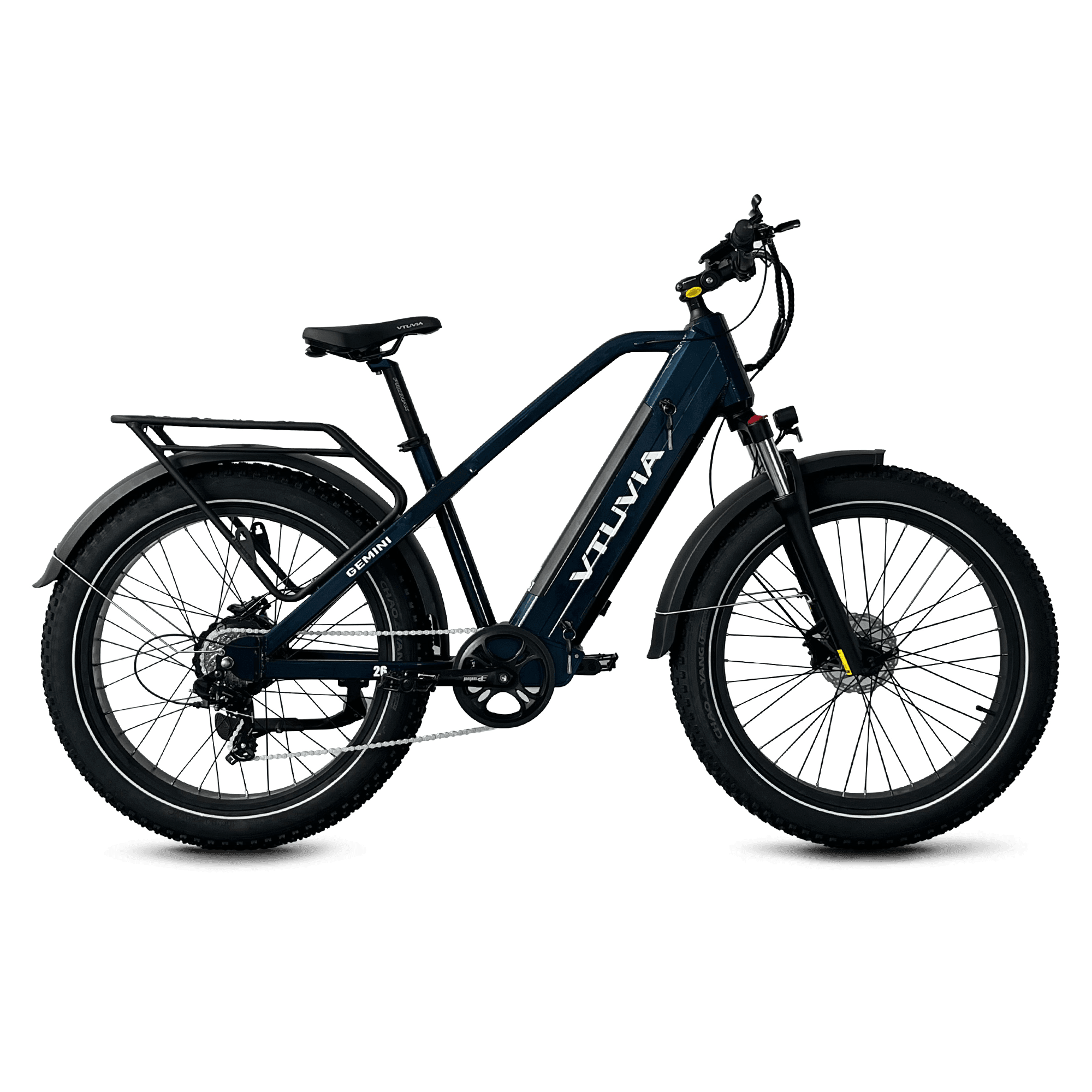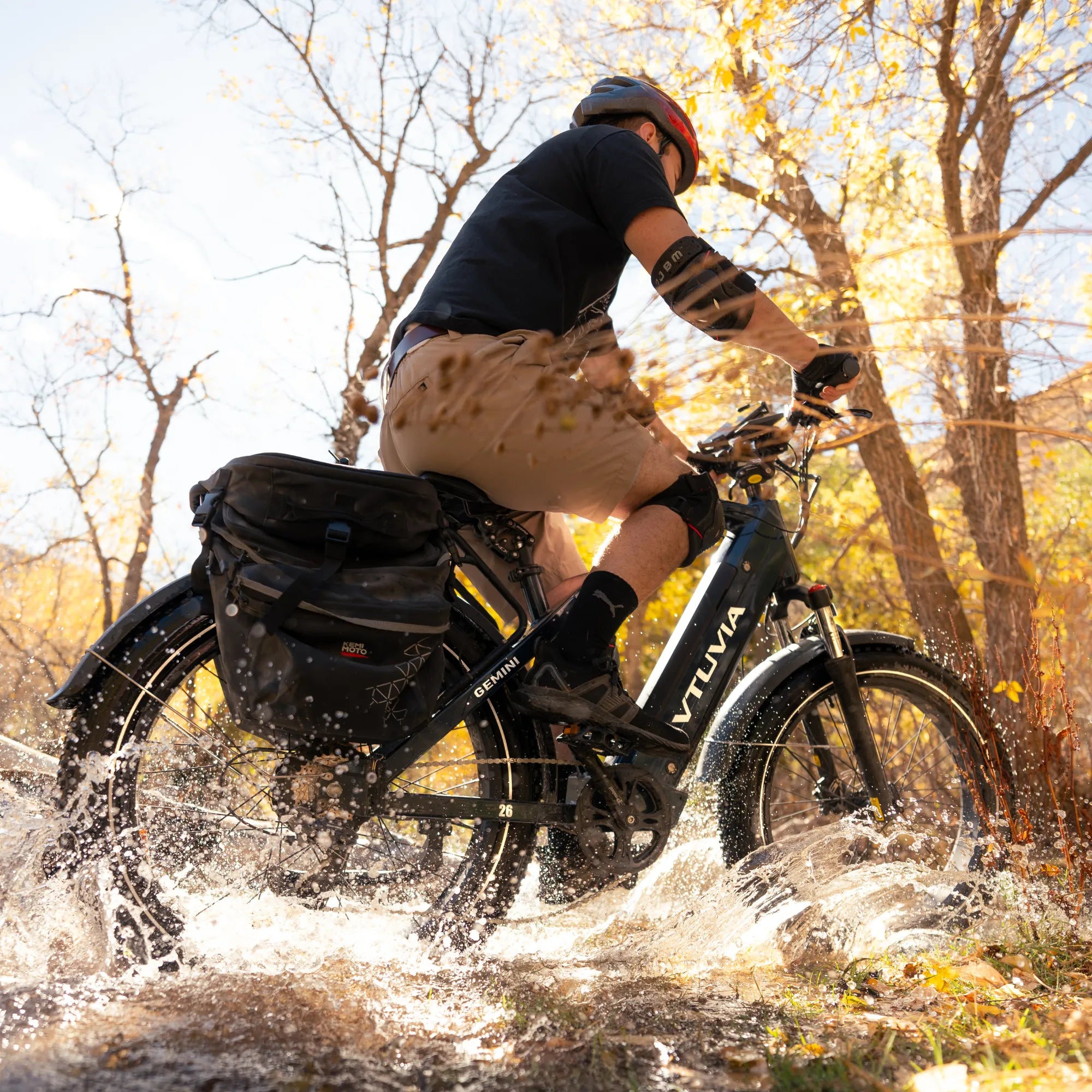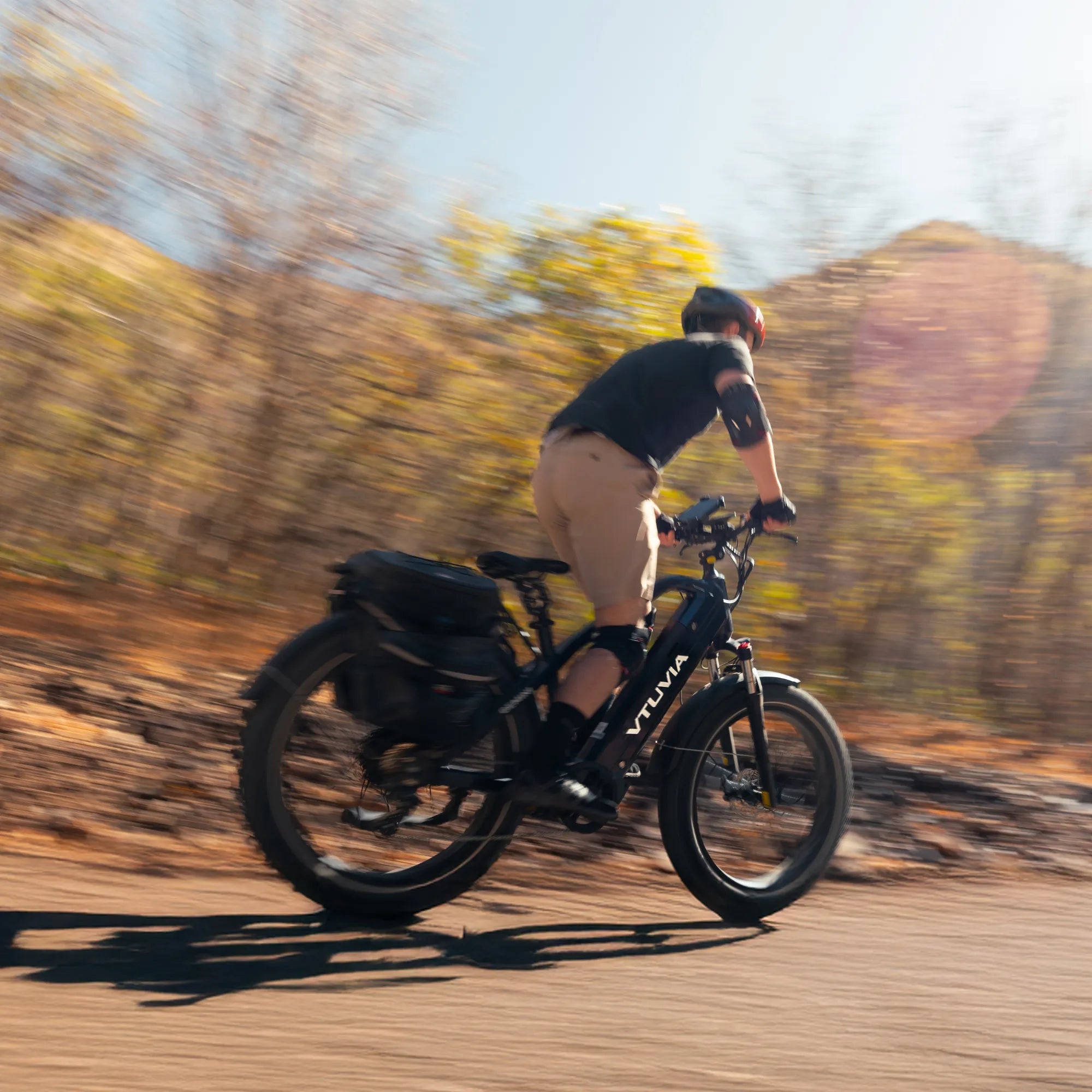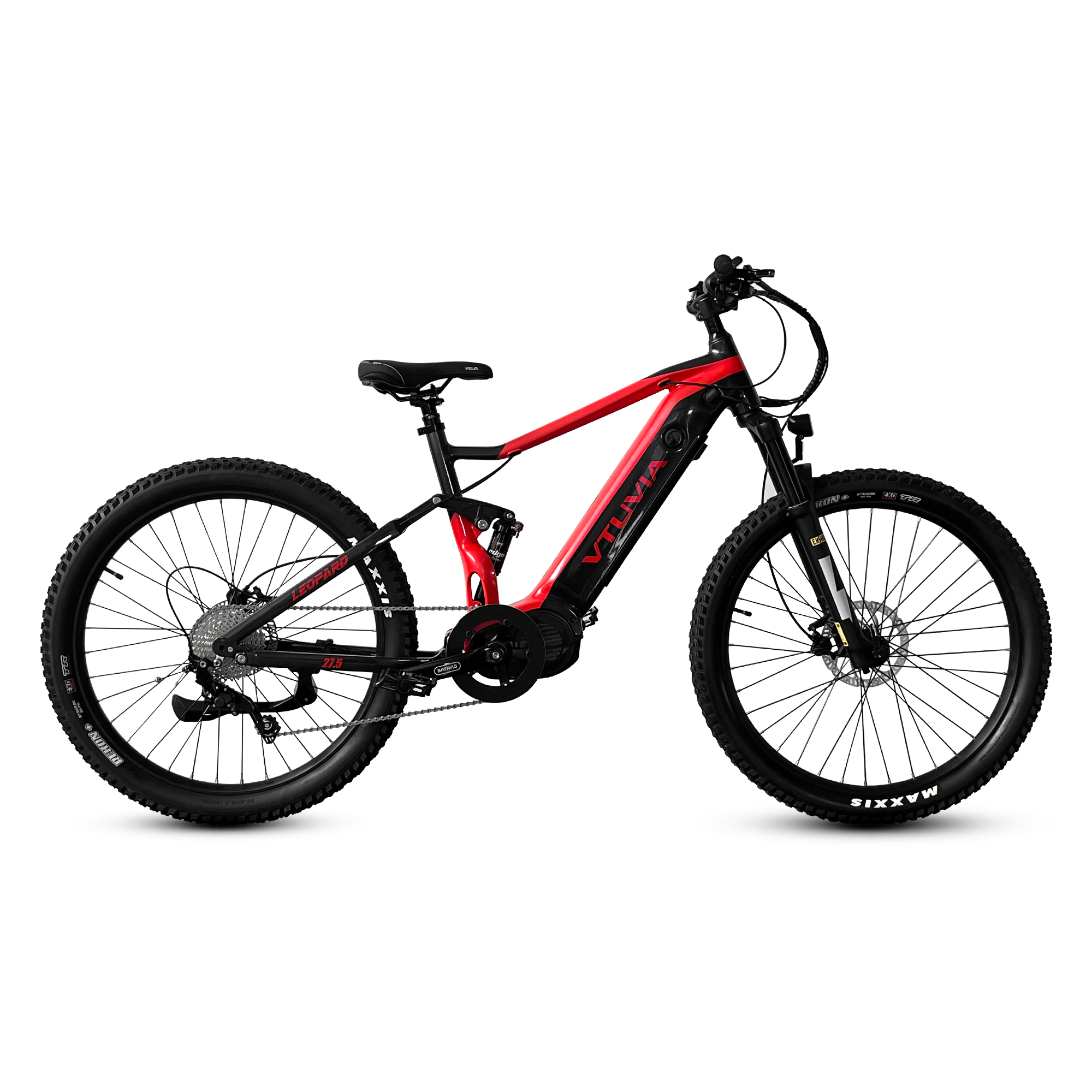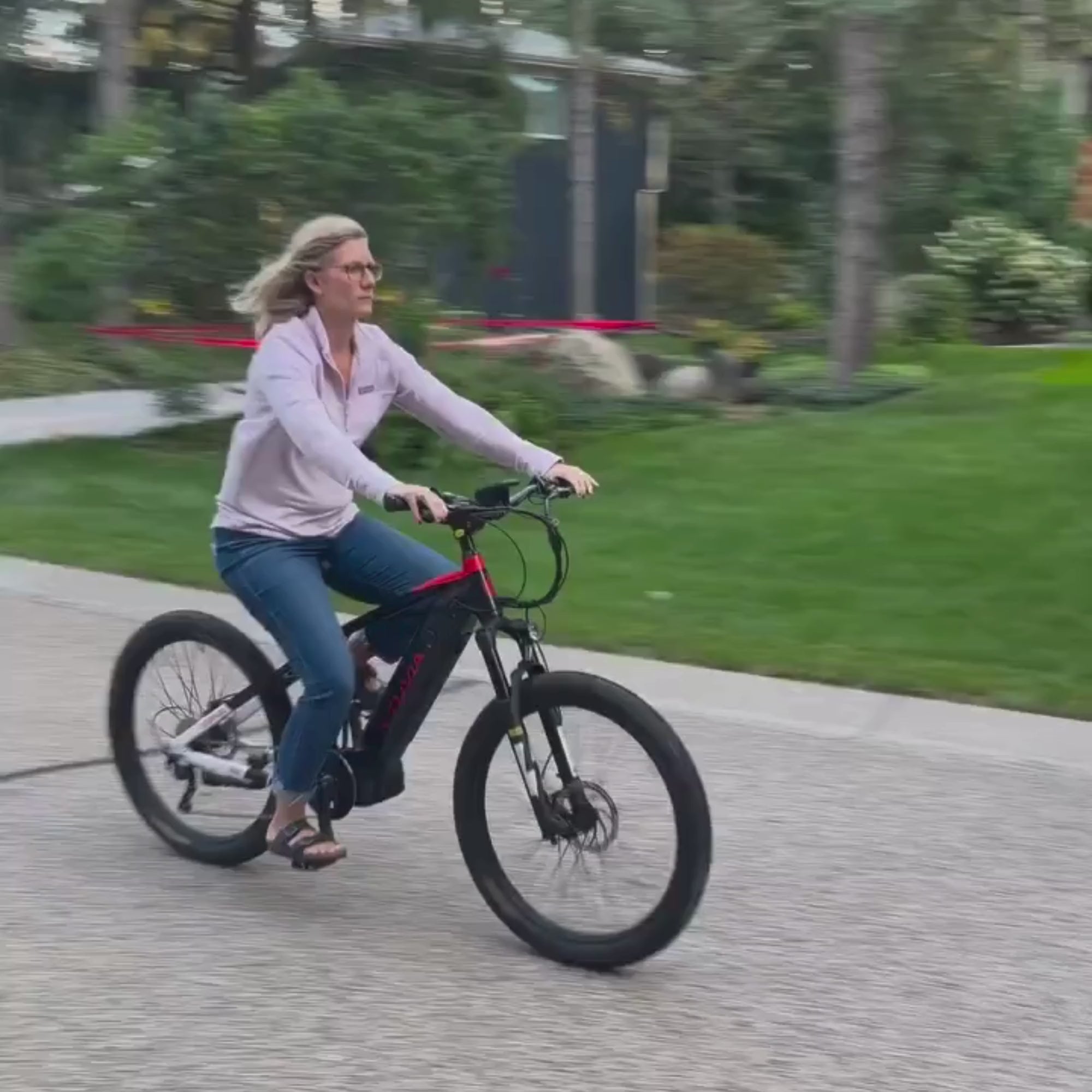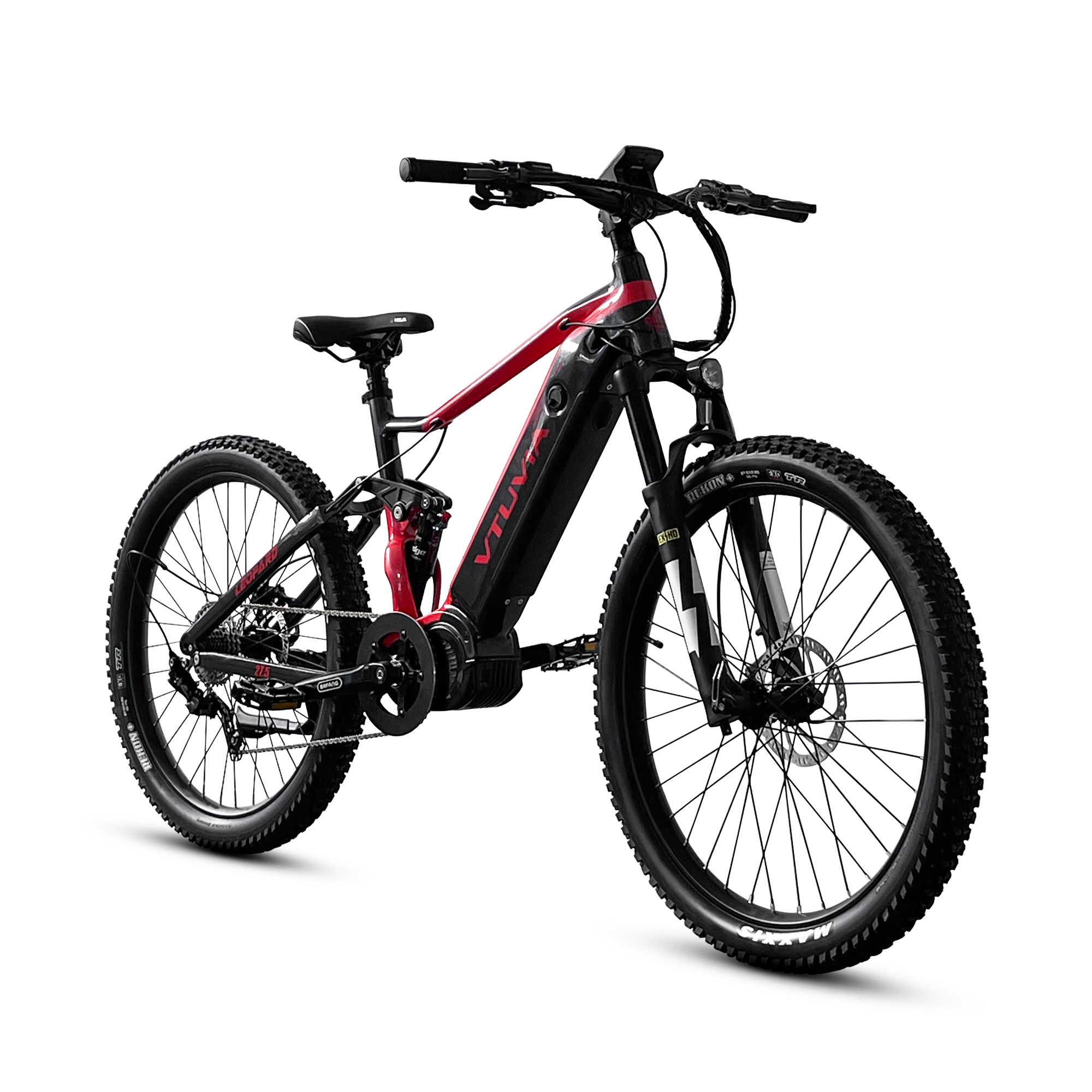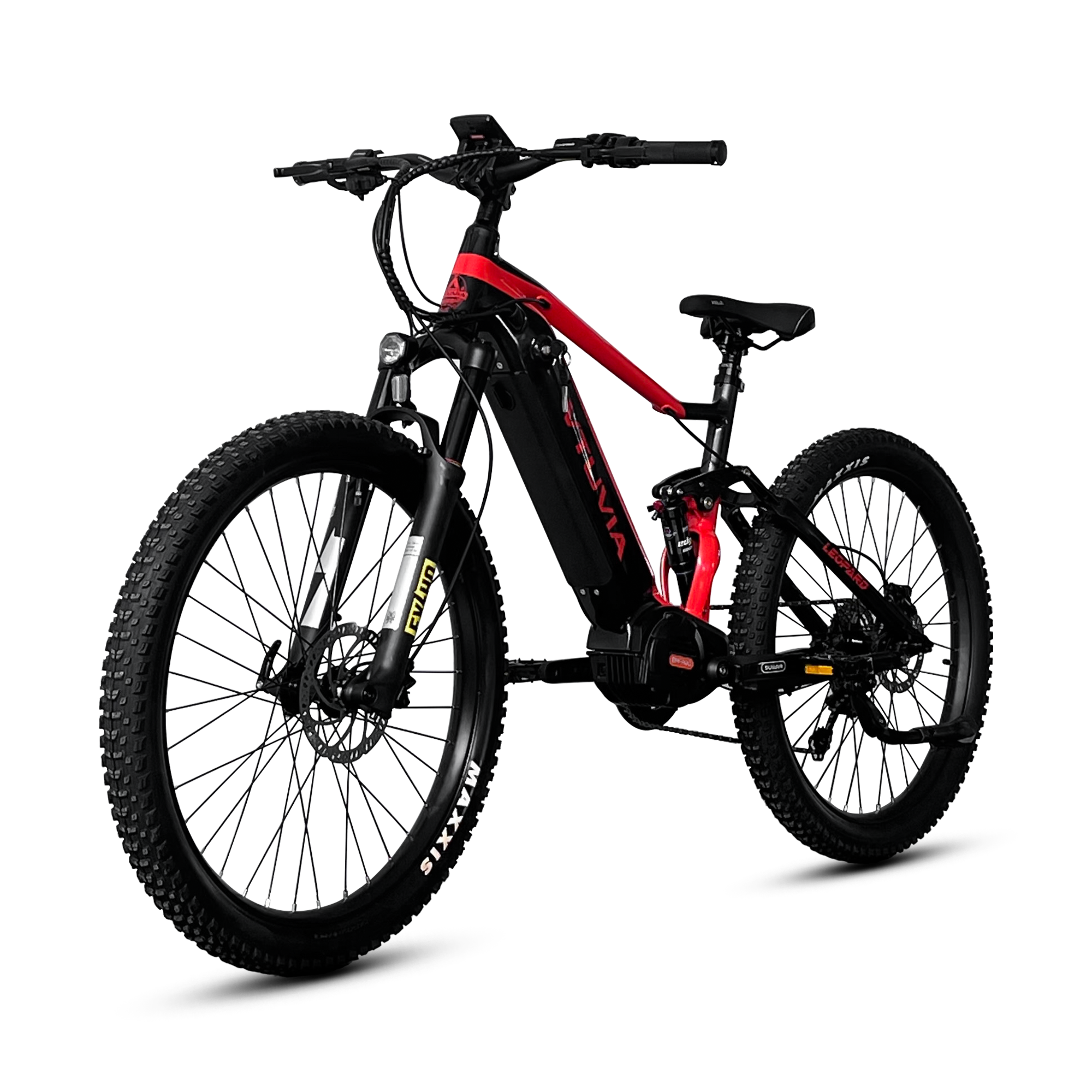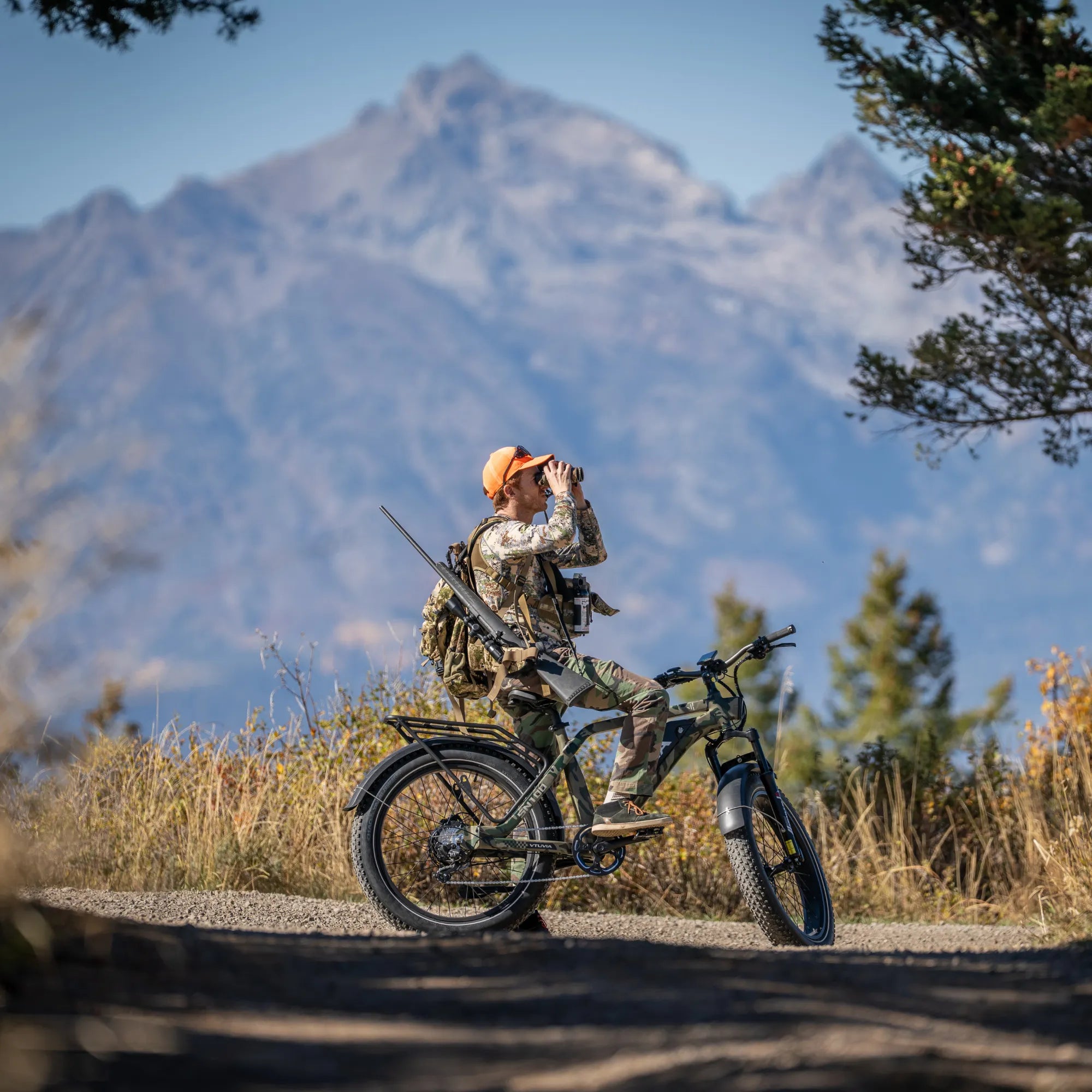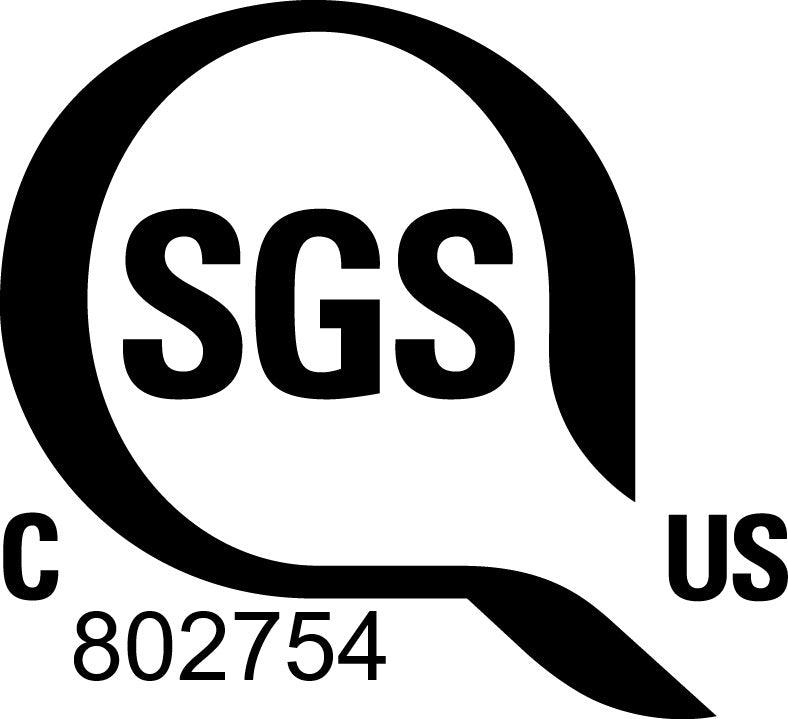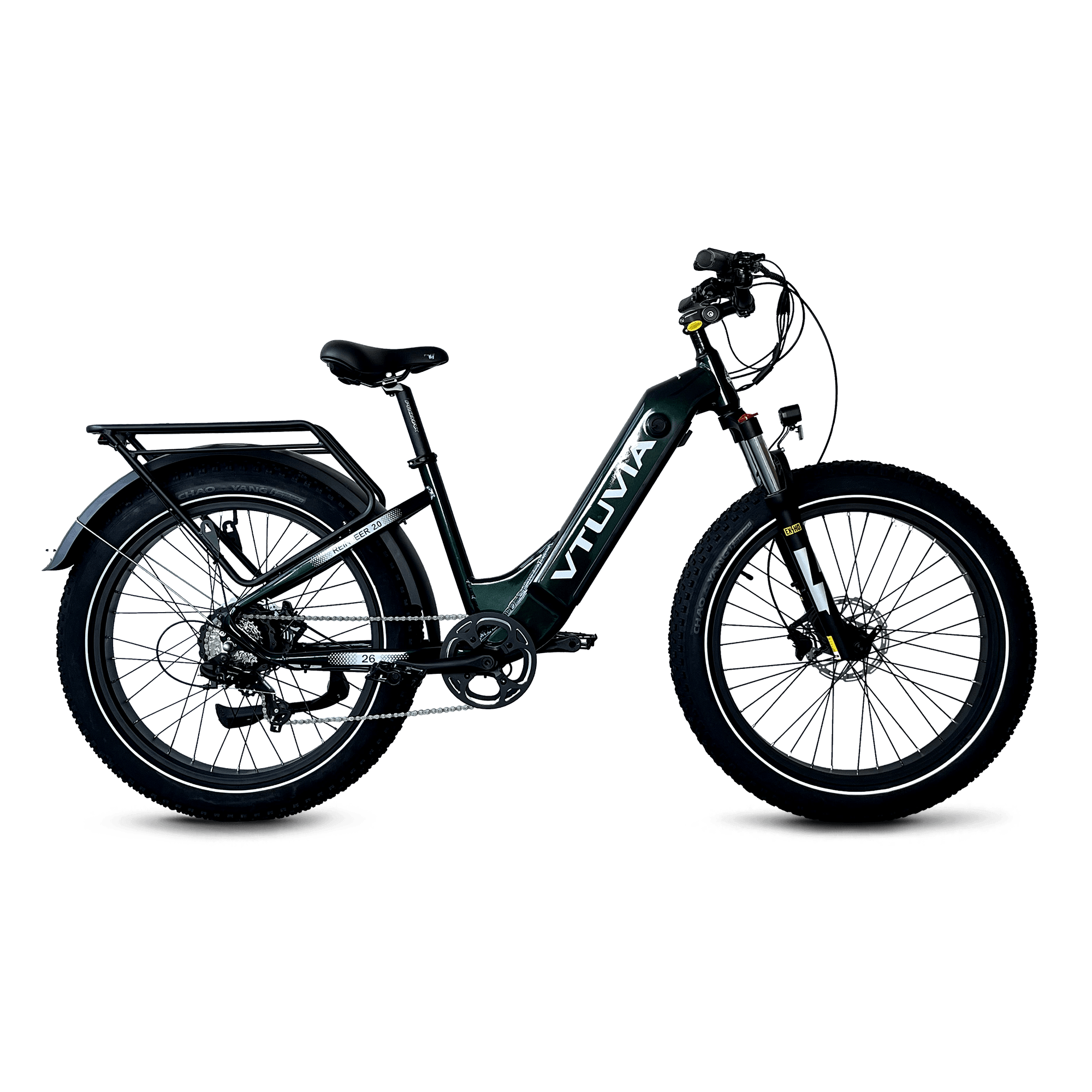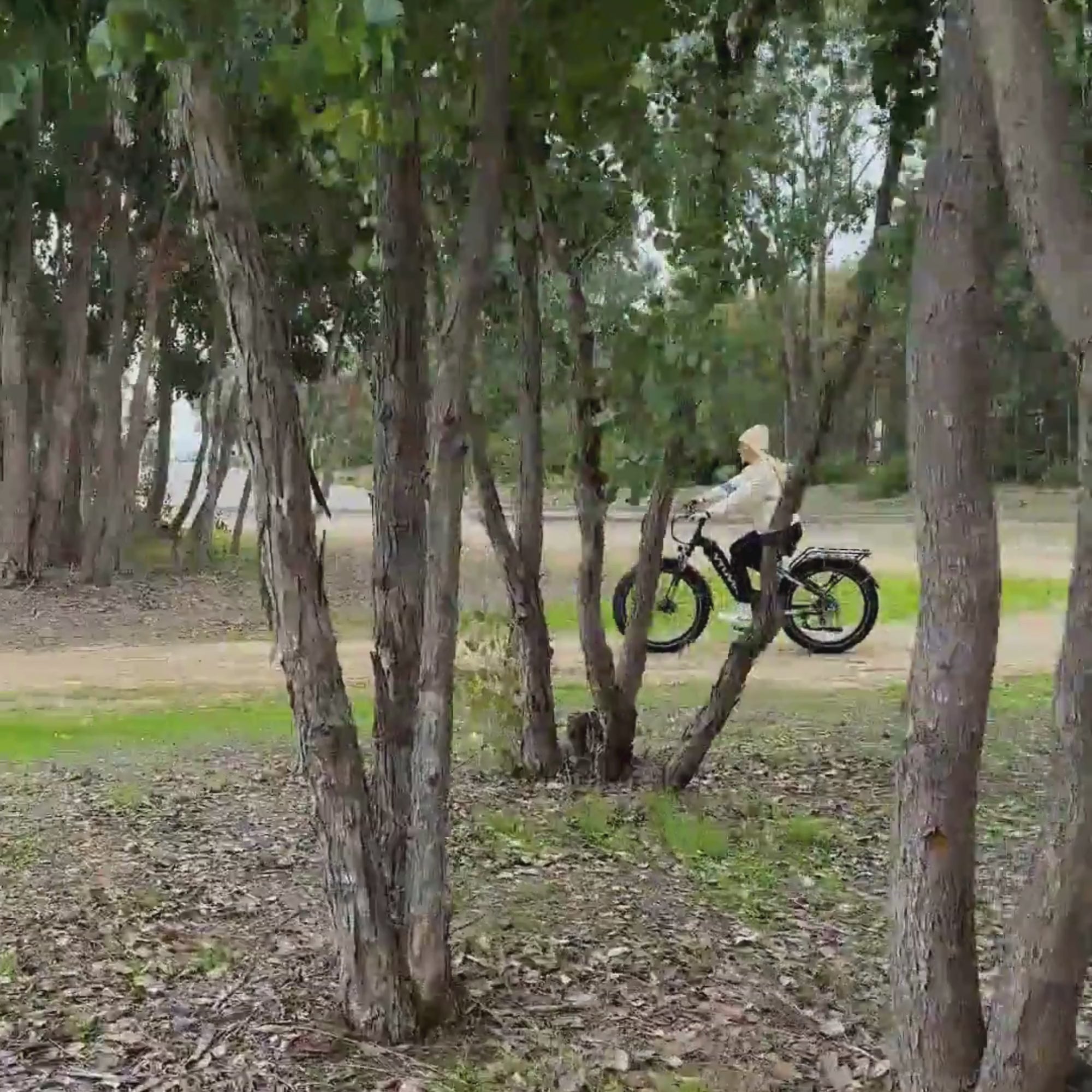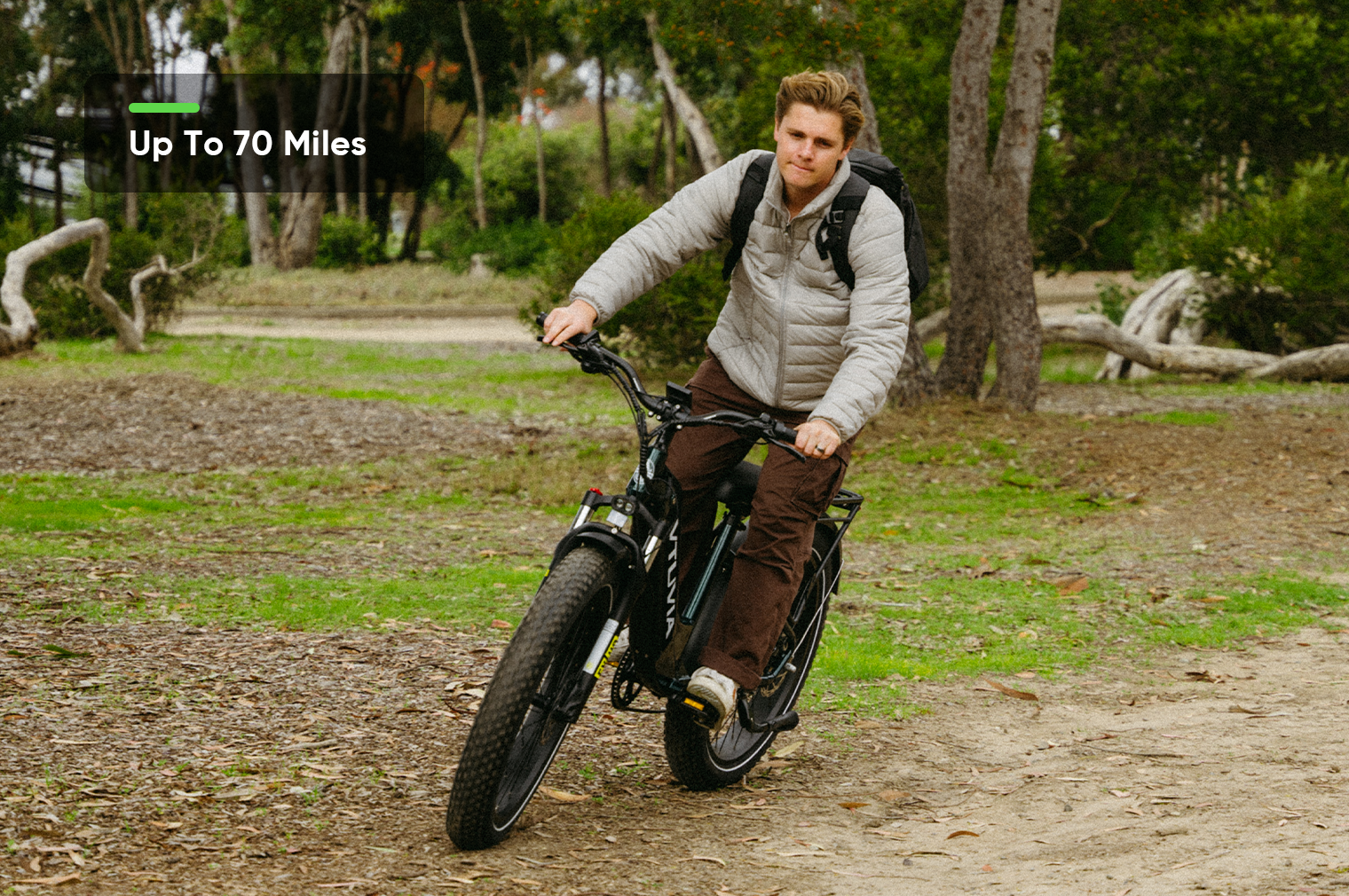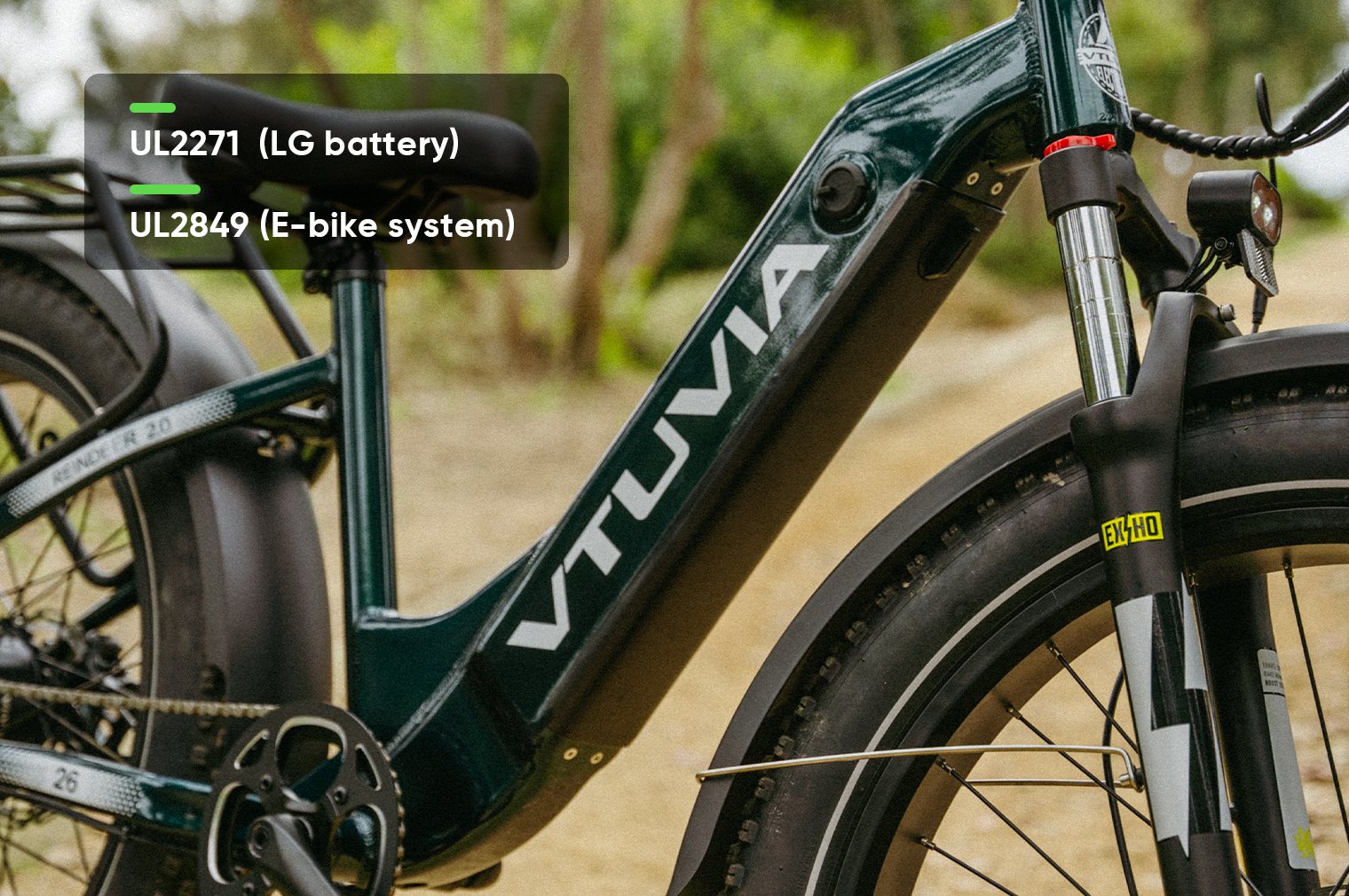Why Choose an Electric Off-Road Bike?
Electric off-road bikes combine rugged frames, powerful motors, and all-terrain tires to help you tackle trails, hills, sand, snow, and dirt roads effortlessly. Unlike traditional bikes, e-off-road bikes offer pedal assist and throttle support, making long rides, steep climbs, and rough terrain manageable for riders of all ages.
Whether you are a weekend adventurer, a hunter exploring trails, or someone seeking an accessible and stable ride, VTUVIA’s electric off-road bikes provide power, safety, and versatility in one package.
How to Choose the Best Electric Off-Road Bike
When selecting the right electric off-road bike, consider the following factors:
- Motor & Power – For serious off-road riding, a 750W to 1000W motor is ideal. VTUVIA’s Reindeer (750W hub motor) and Gemini (1000W rear motor with dual batteries) give you plenty of torque for hills and rough trails.
- Battery & Range – Check the battery capacity and estimated mileage. Long-range batteries (up to 90 miles pedal assist) help you enjoy extended rides without worrying about recharging.
- Frame & Accessibility – Step-through frames are ideal for seniors or riders who prioritize convenience, while step-over frames provide added stability for taller riders.
- Suspension – Front suspension handles bumps and uneven terrain, while full suspension models like the Gemini ensure smooth rides on extreme trails.
- Tire Size & Terrain – Fat tires (20", 26") provide traction on sand, snow, and mud. Choose according to your typical off-road conditions.
- Saddle Comfort – Some bikes include a large standard saddle; others may require an upgrade for long-distance comfort.
- Rider Height & Load Capacity – VTUVIA off-road bikes accommodate riders from 5’0” to 6’5”, with load capacities up to 400 lbs.
- Top Speed – Most off-road e-bikes are Class 2, suitable for trails and controlled off-road areas.
You can also look for folding or step-through off-road designs if portability is important, and don’t forget to check torque sensors for smoother power delivery on rough terrain.
VTUVIA Electric Off-Road Bike Models
Here’s a quick guide to help you choose the right model:
VTUVIA FMB – High-Performance 1000W Mid-Drive Off-Road eMTB
For riders seeking maximum off-road capability, the VTUVIA FMB is built to tackle the toughest trails. Equipped with a 1000W mid-drive motor, it delivers exceptional torque and climbing power, perfect for steep hills, rocky paths, and technical trails. Its full suspension frame absorbs bumps and rough terrain, providing a smooth, stable ride even on challenging surfaces.
Designed for serious adventurers and thrill-seekers, the FMB handles fat tires, heavy loads, and riders up to 400 lbs, making it one of the most powerful electric off-road bikes in VTUVIA’s lineup. Whether you are hunting, exploring remote trails, or pushing your limits on rugged terrain, the FMB ensures unmatched performance and reliability.
VTUVIA Reindeer – 750W Hub Motor Step-Through Fat Tire Off-Road E-Bike
– 750W hub motor, step-through frame, 26x4” fat tires, ideal for snow, sand, and off-road trails. Perfect for beginners and seniors seeking stability.
VTUVIA SN100 – 750W Torque Sensor Fat Tire Off-Road E-Bike
– 750W, torque sensor, fat tires, long-range battery. Best value for adventurers who want both performance and affordability.
VTUVIA Gemini – 1000W Dual Battery Full Suspension Off-Road E-Bike
The Gemini is built for extreme off-road performance. Equipped with a 1000W motor, dual batteries, and full suspension, it easily tackles rough trails, steep inclines, and challenging terrain. Perfect for hunters, thrill-seekers, and serious off-road adventurers who want the ultimate e-bike experience.
VTUVIA Off road Electric Bikes Compare
FMB Ebike$2,999.00 | Gemini 1000W Ebike$1,899.00 | SN100 Hunting Ebike$1,649.00 | Reindeer 2.0 Ebike$1,649.00 | |
|---|---|---|---|---|
| Performance | ||||
Range |
—
|
|
|
|
Speed |
|
|
|
|
Shift Lever |
|
|
|
|
Pedal Assist |
|
|
|
|
Terrain |
|
|
|
|
| E-system & Drivetrain | ||||
Motor |
|
|
|
|
Torque |
|
|
|
|
Sensor |
|
|
|
|
Battery |
|
|
|
|
Charging Time |
|
|
|
|
| Frameset | ||||
Frame |
|
|
|
|
Frame Style |
|
|
|
|
Seat |
|
|
|
|
Foldable |
|
|
|
|
Display |
|
|
|
|
Brakes |
|
|
|
|
Brake Rotors |
—
|
|
|
|
Suspension |
|
|
|
|
Tires |
|
|
|
|
Lights |
|
|
|
|
Fenders |
|
|
|
|
Rear Rack |
|
|
|
|
| Weight & Dimensions | ||||
Net Weight( Include rear rack & fenders) |
|
|
|
|
Total Paypoad Capacity |
|
|
|
|
Rider Height |
|
|
|
|
Standover Height |
|
|
|
|
Minimum Seat To Floor |
|
|
|
|
Electric Offroad Bike Reviews (2025)
FAQs
What is the best electric off-road bike for beginners?
VTUVIA Reindeer is ideal for beginners due to its step-through frame, stable handling, and fat tires that provide extra traction on rough terrain.
Which VTUVIA off-road e-bike is the most powerful?
The FMB 1000W mid-drive eMTB offers maximum off-road performance with full suspension and long-range capabilities for extreme trails and steep climbs.
Are fat tire off-road e-bikes good for snow, sand, and rugged trails?
Yes, VTUVIA fat tire models like Reindeer, SN100, and Gemini excel in snow, sand, mud, and other challenging terrains.
Can VTUVIA e-bikes handle riders up to 400 lbs?
Yes. VTUVIA e-bikes like the Gemini and FMB are heavy-duty and stable, suitable for riders up to 400 lbs.
Are fat tire e-bikes good for off-road trails?
Absolutely. Fat tires on the Reindeer, SN100, and Gemini provide extra stability on sand, snow, and rocky terrain.
Do VTUVIA off-road bikes have pedal assist and throttle modes?
Yes, all off-road models feature both pedal assist and throttle for flexible, energy-saving riding.
What is the range of VTUVIA off-road e-bikes?
Ranges vary by model: Reindeer up to 70 miles (pedal assist), SN100 up to 70 miles, Gemini up to 90 miles, and FMB up to 85 miles on mixed trails.
Which VTUVIA off-road bikes come with full or front suspension?
FMB offers full suspension for aggressive trails, while Reindeer, SN100, and Gemini feature front suspension forks for balanced comfort and off-road performance.
What motor options are available for VTUVIA off-road bikes?
750W rear hub motors are available on Reindeer and SN100, while Gemini has a 1000W rear hub motor, and FMB features a 1000W mid-drive motor for maximum power.
Are these bikes suitable for all ages?
Yes, VTUVIA off-road bikes are suitable for riders 16 years and older, as long as the rider’s height fits the bike’s recommended range. Step-through models like Reindeer are especially friendly for seniors, while high-step fat tire bikes fit most adult riders.
Are VTUVIA off-road e-bikes suitable for hunting or adventure trips?
Yes, fat tires, long-range batteries, and stable frames make models like Gemini, SN100, Reindeer, and FMB perfect for hunting, exploration, and off-road adventures.
Can VTUVIA off-road bikes handle extreme terrain?
Yes, all fat tire models are designed for off-road conditions, including dirt trails, forest paths, snow, sand, and moderate hills.
Which VTUVIA off-road bike is best for long-range rides?
The Gemini 1000W with dual batteries offers the longest range, making it perfect for extended off-road trips.





